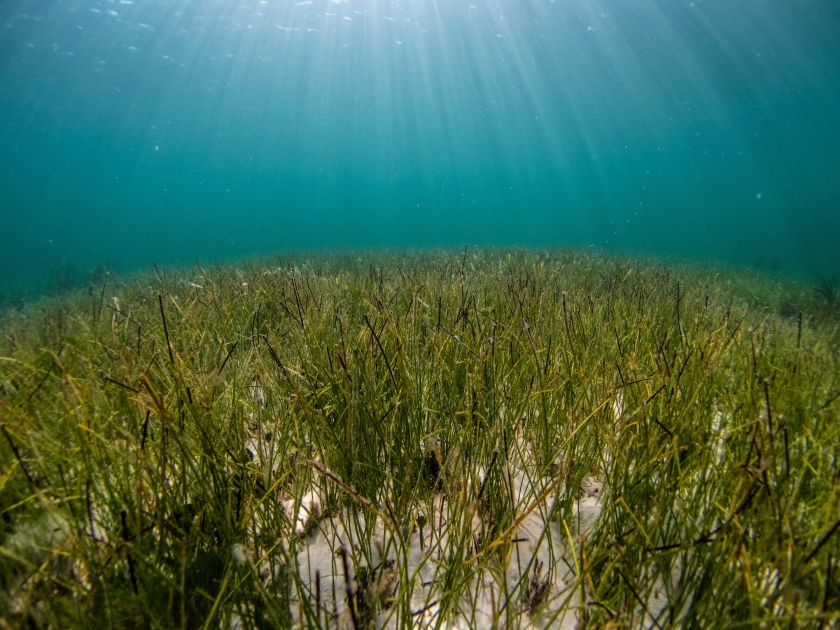
Report highlights 2 Egyptian projects among major clean energy ventures in N.Africa
A report by Energy Capital & Power highlighted two Egyptian projects – Suez Wind Power ...

Seven marine conservation projects from around the world have each received grants of $80,000 from the United Nations Environment Program (UNEP) and its partner, the International Coral Reef Initiative (ICRI).
The funding is designed to help restore and preserve seagrass meadows, mangrove forests and coral reefs. UNEP received more than 430 grant proposals from 93 countries, ultimately choosing winners from the Caribbean, Africa and Asia.
“We selected projects based on their innovation in terms of using new conservation, restoration and sustainability approaches for three key marine habitats: mangroves, seagrass meadows and coral reefs,” said Gabriel Grimsditch, UNEP Program Management Officer.
Those three ecosystems support a myriad of sea life, store carbon dioxide, and protect communities from storm surges and flooding. However, they are under siege from climate change, irresponsible coastal development and pollution, which experts say threatens life above and below water.
The Status of Coral Reefs of the World 2020 report published by the Global Coral Reef Monitoring Network and supported by UNEP found that 14 percent of the world’s corals have disappeared in the last decade.
The report highlights that whilst coral reefs cover only 0.2 percent of the seafloor, they support at least 25 per cent of marine species and underpin the safety, coastal protection, well being, food and economic security of hundreds of millions of people.
These grants are made possible through funding from the United States of America’s Department of State, the Prince Albert II of Monaco Foundation and the Swedish International Development Cooperation Agency.
The winning projects included Fragments of Hope, a community-based organization in the Placencia Peninsula of southern Belize. The project re-seeds devastated Caribbean reefs with diverse and resilient corals.
With the grant, Fragments of Hope will expand its work to the northern side of Belize, an area plagued by stony coral tissue loss disease. The condition rapidly kills corals, leaving behind a bright white skeleton.
The organization will also support the nationwide mapping of coral reefs that are more resistant to warming seas, considered key as climate change heats the world’s oceans.
Also, Misión Tiburon which aims at protecting mangroves in Costa Rica was among the winning projects.
Misión Tiburon will replant mangroves in the Hammerhead Shark Sanctuary at Costa Rica’s Golfo Dulce. The wetlands are a nursery for the critically endangered scalloped hammerhead shark.
The project, established in 2009, is focused on conserving other marine life as well by reviving mangrove forests, one of the area’s most important and threatened coastal ecosystems.
Perry Institute for Marine Science was also among the winning projects as it aims to revive coral reefs in The Bahamas.
The Perry Institute for Marine Science plans to use the new funding to advance a community program to restore coral reefs in New Providence Island, Nassau. Restoration of these sensitive undersea ecosystems had been done previously but largely by scientists and managers.
Also, The Gambia Department of Parks and Wildlife Management was among the winning projects.
Unregulated fishing and the lack of awareness of the importance of seagrass in The Gambia have hindered the natural regeneration of this undersea plant.
The Gambia Department of Parks and Wildlife Management is aiming to reverse the decline of seagrass. It is striving to become the first community-led seagrass conservation and restoration effort in the south-western beach communities in Gunjur and Kartong.
Also, a project for protecting seagrass ecosystems in Kenya was among the projects that won the grant.
This grant will be implemented by Flora & Fauna International and the Kenya Marine and Fisheries Research Institute.
The two organizations will use the grant to map out core seagrass habitats and advocate for increased protections for the plants, helping to safeguard fish, turtles and Kenyan dugong populations that live among the plants.
The organizations will also further the restoration of mangrove forests, another vital ecosystem.
Creating “blue” economic opportunities in Madagascar (Blue Ventures Conservation) was also among the winners.
The seagrass in three locally managed marine areas in the southwest of Madagascar, Velondriake, Manjaboake and Teariake, are threatened by destructive fishing, especially beach seining. Blue Ventures Conservation seeks to train community members to map and monitor the seagrass in the three conservation areas.
The organization also plans to help 150 small-scale fishers develop sea cucumber farms, diversifying their income.
Re-enforcing marine governance in the Philippines (C3 Philippines) was also among winning projects.
Using the grant, C3 Philippines wants to develop a governance system that integrates conservation and sustainability into the use of three coastal marine ecosystems—coral reefs, mangroves and, seagrasses—in the Green Island Bay. The project proposes the piloting of novel management and governance models for coastal marine ecosystems.
The conservation grants come amid the UN Decade of Ocean Science for Sustainable Development (2021-2030), which seeks to ensure that ocean science supports national actions to sustainably manage underwater ecosystems and contributes to the 2030 Agenda for Sustainable Development.
A report by Energy Capital & Power highlighted two Egyptian projects – Suez Wind Power ...
The opening concert of the Annual Meeting 2025 in Davos-Klosters will address the pressing issues ...
Juhayna Food Industries proudly announced that its agricultural arm, El Enmaa for Agricultural Development, has ...


اترك تعليقا